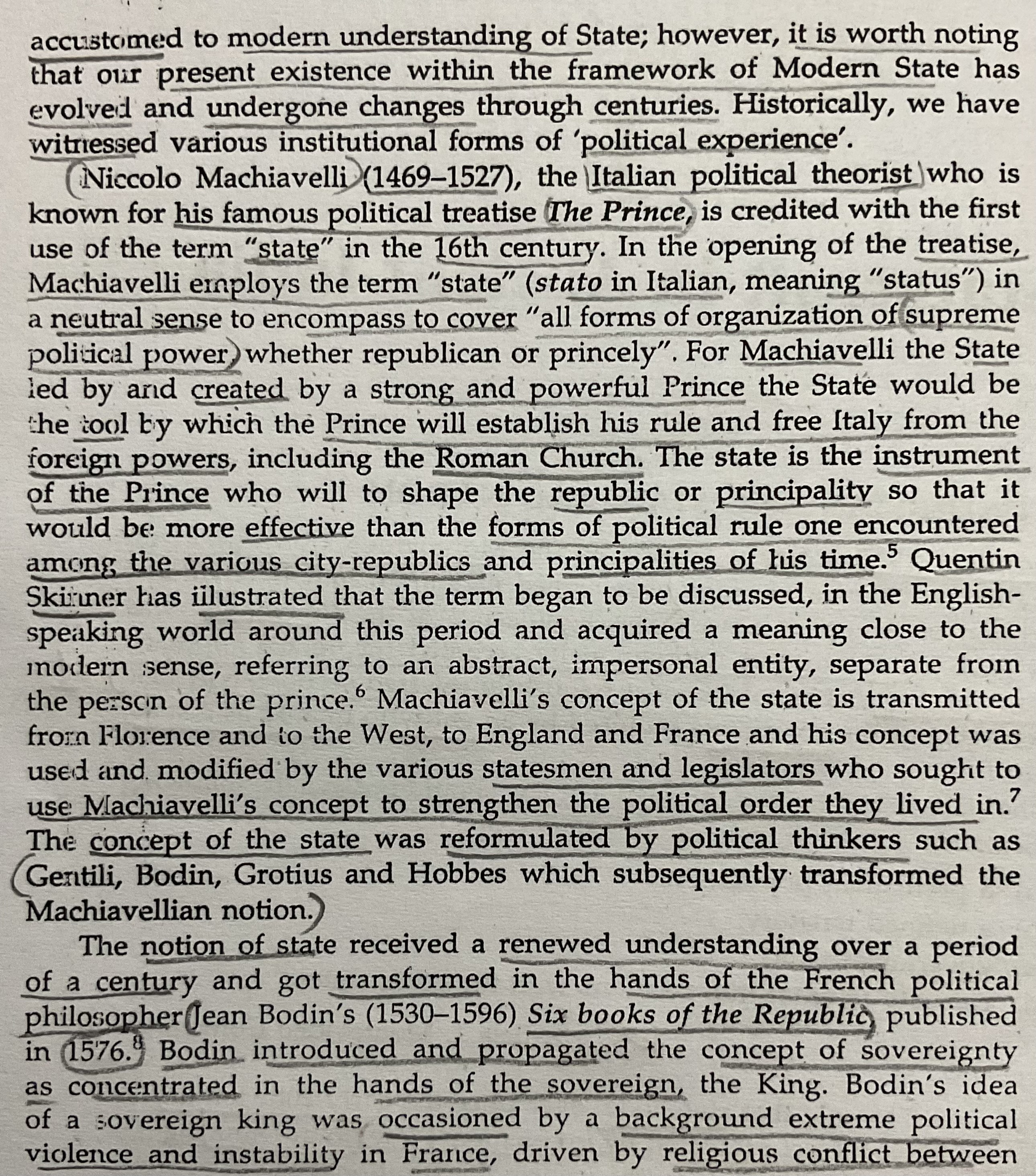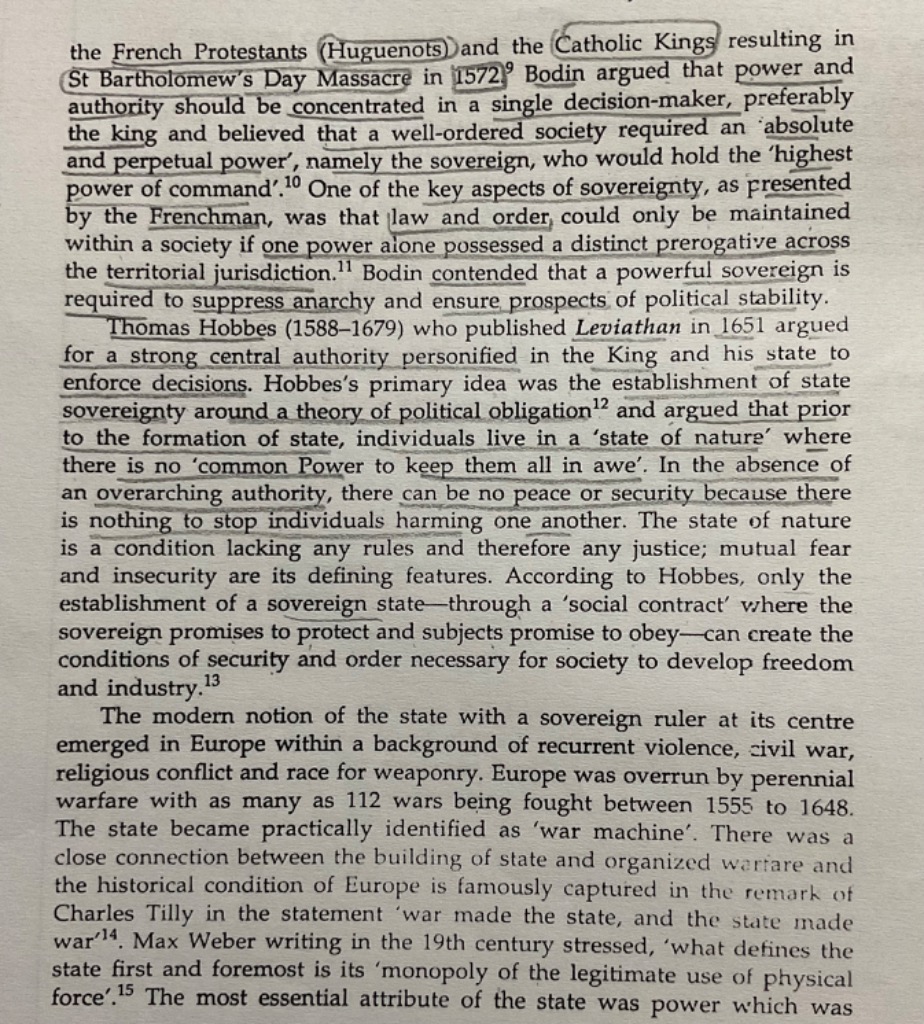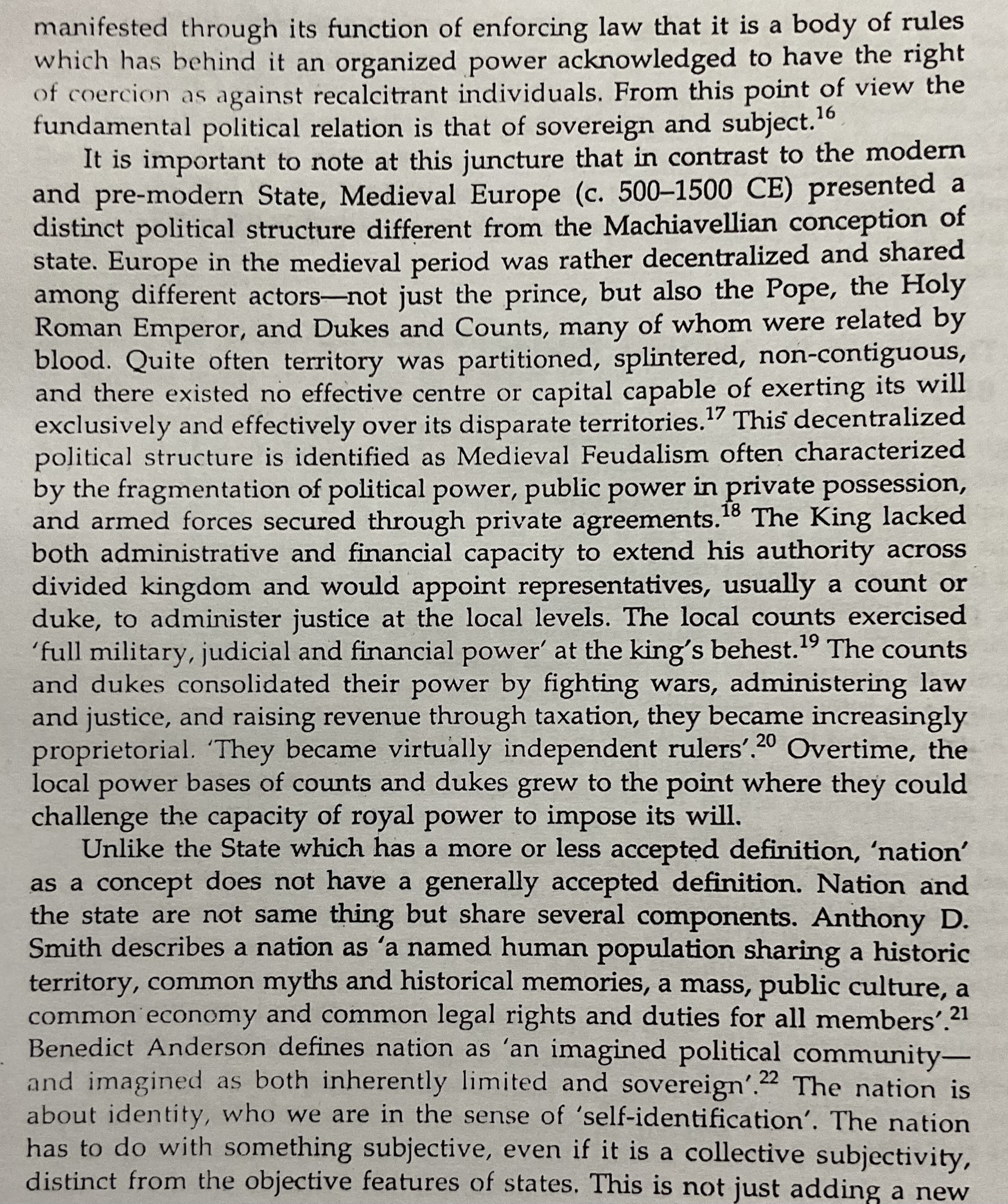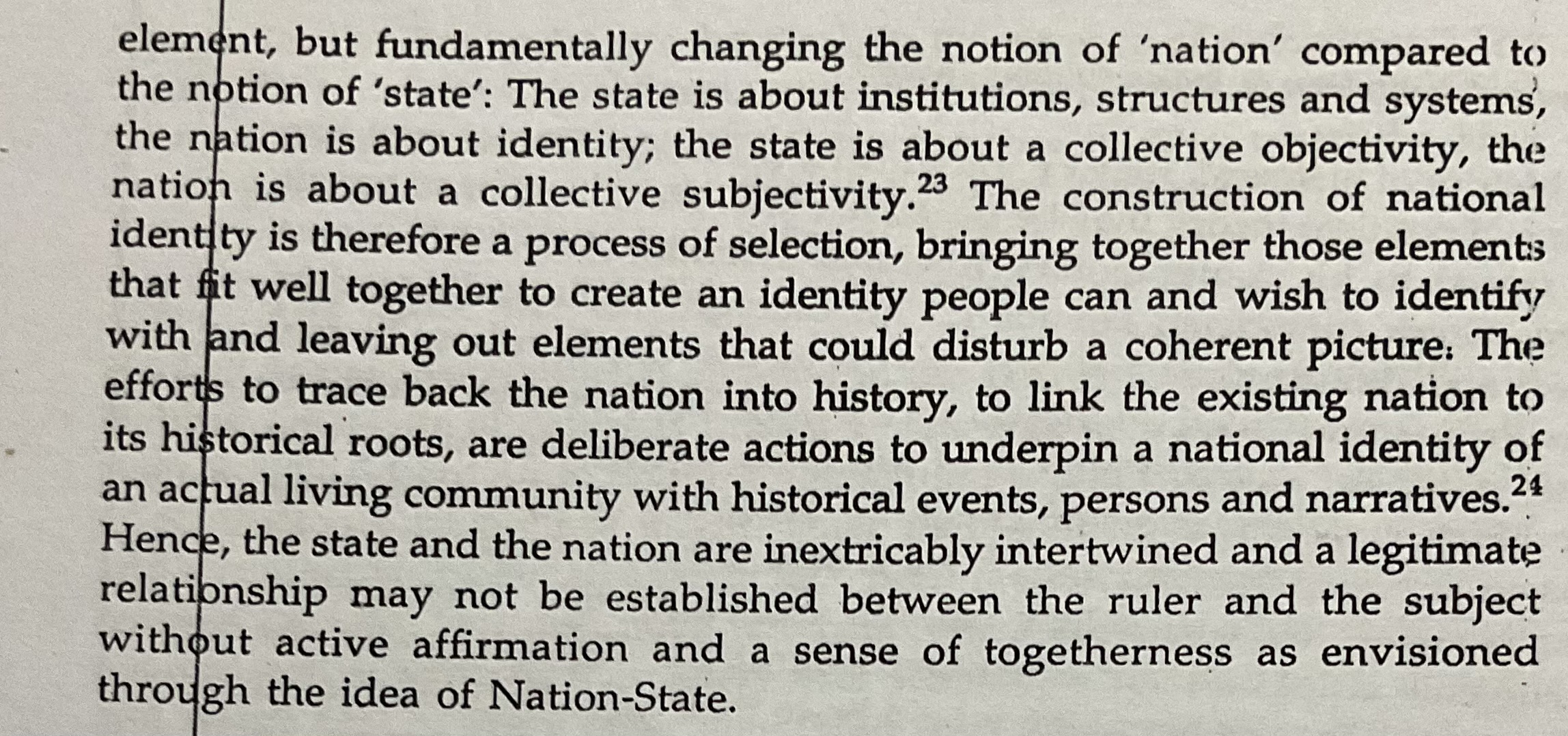The Evolution of the State: Historical Insights and Theories
The Concept of the State: Historical Perspectives

Introduction to the State
- Our understanding of the state has evolved significantly over the centuries, shaping modern political frameworks.
- Various institutional forms of 'political experience' have been witnessed historically.
Niccolò Machiavelli and His Influence
- Niccolò Machiavelli (1469–1527) : Renowned Italian political theorist, author of The Prince.
- Credited with the first use of the term "state" in the 16th century.
- Key Insight: Machiavelli's approach to the state revolves around its various organizations of supreme political power, whether republican or princely.
- Quote from Machiavelli: The state is seen as a tool for the Prince to establish authority and protect Italy from external powers like the Roman Church.
Machiavelli's Definition of State
- The term "state" (stato in Italian) is used neutrally to encompass all forms of political organization.
- Emphasizes the role of a strong prince in shaping political governance.
- Additional Information: The concept of the state was later adopted and modified by various statesmen across different regions, illustrating the universality and adaptability of Machiavelli’s ideas.
Transformation of the Concept of State
- Quentin Skinner's Insights: Explores how the term began to be defined distinctly in English-speaking contexts.
- The state as an abstract, impersonal entity separates from the individual ruler (the prince).
- The evolution of the state is traced from Florence to broader contexts in England and France.
- Various political thinkers reformulated Machiavelli's idea of the state:
- Thinkers Mentioned: Gentili, Bodin, Grotius, and Hobbes.
Jean Bodin's Contribution
- Jean Bodin (1530–1596) : A French philosopher known for Six Books of the Republic (published in 1576).
- Introduced and propagated the concept of sovereignty, roots in the authority of a king.
- Context: Driven by extreme forms of violence and instability in France due to religious conflicts, Bodin's work highlighted the necessity of a strong, centralized authority.
Summary of Key Concepts
- The state is an evolving concept, crucial for understanding political authority.
- Machiavelli viewed the state primarily through the lens of power dynamics and the role of leadership.
- The adaptation of Machiavelli's ideas by later political theorists illustrates the continuous nature of political thought development over centuries.
Extended readings:
Sovereignty and Political Authority

Key Concepts
-
Sovereignty:
- Defined as the highest power within a territory, held by an individual or governing body. The idea of sovereignty is crucial for maintaining law and order within society.
- Bodin emphasized that sovereignty should be concentrated in a single decision-maker (the king) for a well-ordered society.
-
Thomas Hobbes (1588-1679) :
- Published Leviathan in 1651.
- Advocated for strong central authority embodied in a monarch, positing that without such authority, people live in a "state of nature," characterized by chaos and insecurity.
- Hobbes argued that the lack of a common power leads to a breakdown of order, with individuals unable to depend on mutual protection.
Political Obligations
- Political Obligation:
- Hobbes centered his theory on the need for a sovereign state that promises protection in exchange for obedience from its subjects. This concept ties closely with the social contract theory.
Historical Context
-
Religious Conflict in Europe:
- The emergence of the sovereign state was influenced by recurrent violence, including civil wars and conflicts over religious differences (notably, the French Protestant Huguenots vs. Catholic Kings).
- During the period from 1555 to 1648, there were as many as 112 wars fought, reflecting the tumultuous political landscape of Europe.
-
Max Weber's Perspective:
- Weber described the modern state as having a "monopoly of the legitimate use of physical force."
- This means that a state is recognized as the only entity that can legitimately use or authorize violence.
Insights
- The significance of a strong sovereign authority was underlined by historical crises, emphasizing its role in societal stability.
- Understanding the evolution of state sovereignty helps in grasping contemporary political theories and the legitimacy of modern governments.
Additional Notes
- The concept of a social contract is vital; it outlines the mutual agreements between the governing authority and the governed.
- Sovereignty is often challenged in modern contexts, particularly with questions surrounding globalization, sovereignty pooling in international organizations, and human rights considerations.
Extended readings:
Notes on Medieval Europe and the Concept of Nation

Key Points
1. Definition and Function of Law
- Law serves as a body of rules enforced by an organized power.
- This power has the right of coercion against individuals who resist.
- Fundamental political relation is characterized by sovereignty and subjecthood.
Insight: Sovereignty refers to the ultimate authority within a territory, while subjecthood pertains to the relationship between the ruler and the ruled.
2. Political Structure of Medieval Europe (c. 500-1500 CE)
- Medieval Europe differed from modern states by presenting a decentralized political structure.
- Power was distributed among various actors, including the Pope, the Holy Roman Emperor, Dukes, and Counts, often linked by blood relations.
- Territorial control was fragmented and commonly non-contiguous.
Additional Information: This structure is often referred to as Medieval Feudalism, where land and power were decentralized.
3. The Role of the King
- The King lacked the administrative and financial capacity to assert authority across a divided kingdom.
- Delegation of power occurred through county or duchy representatives.
- Local counts and dukes exercised significant judicial and military authority.
Insight: The term "feudal system" refers to the way land was exchanged for military service and loyalty, making local rulers quite powerful.
4. Increasing Independence of Local Rulers
- Counts and dukes gained autonomy by engaging in wars, administering law, and raising revenue through taxation.
- Over time, they became virtually independent rulers, complicating the royal power dynamics.
5. Definition of Nation vs. State
- Unlike the more defined concept of the State, 'nation' lacks a universally accepted definition.
- Nations and states share components but are not synonymous.
Key Components as described by thinkers:
- Anthony D. Smith: Defines a nation as a "named human population sharing a historic territory, common myths and historical memories, a mass, public culture, a common economy, and common legal rights and duties for all members."
- Benedict Anderson: Describes a nation as "an imagined political community" that is both inherently limited and sovereign.
Additional Insight: The idea of the nation as an "imagined community" emphasizes the collective identity formed among people who may not know each other personally.
6. Conclusion
- The political landscape of medieval Europe was characterized by decentralized power, contrasting sharply with modern conceptions of the State.
- Understanding the distinctions between nations and states can provide valuable insights into contemporary political structures and identities.
Final Thought: The socio-political frameworks established in medieval times continue to influence modern governance and national identity.
Extended readings:
Notes on Nation and State

Key Concepts
-
Distinction Between Nation and State
- The terms 'nation' and 'state' are often conflated, yet they embody distinct concepts.
- Nation: Primarily concerned with identity; it is about the emotional and subjective experience of people sharing common characteristics.
- State: Refers to institutions, structures, and systems governing a defined territory; it emphasizes objective organization and administration.
-
Collective Subjectivity vs. Collective Objectivity
- The state pertains to collective objectivity—governing laws, systems, and bureaucracies.
- The nation reflects collective subjectivity—the shared identity, culture, and values of a group of people.
-
Construction of National Identity
- National identity is constructed through a selective process, gathering elements that create a cohesive identity for the group.
- This involves:
- Identifying shared values and beliefs.
- Omitting elements that could disrupt a coherent national narrative.
-
Historical Context in National Identity
- Efforts to trace historical roots support the construction of a national identity.
- These efforts include linking narratives of the past to create a sense of continuity and belonging.
-
Interconnection of State and Nation
- The relationship between state and nation is deeply intertwined.
- A legitimate relationship between the ruler (state) and the subjects (nation) is founded on mutual affirmation and a shared sense of identity.
Insights and Additional Information
-
Nation-State Concept: This term describes the ideal situation where the boundaries of a nation correspond to those of a state, fostering a deep connection between identity and governance.
-
Cohesive Picture: The coherent identity produced through selective history helps in governance and creates a more unified citizenry.
-
Historical Situations: Events and significant historical figures play crucial roles in shaping national identity, providing touchstones for collective memory.
-
Role of Narratives: Narratives and myths can be powerful tools in nation-building, reinforcing shared identities and cultural significance.
Understanding the nuances between nation and state enhances our grasp of political and cultural dynamics within societies, especially in an increasingly globalized world.
Extended readings: